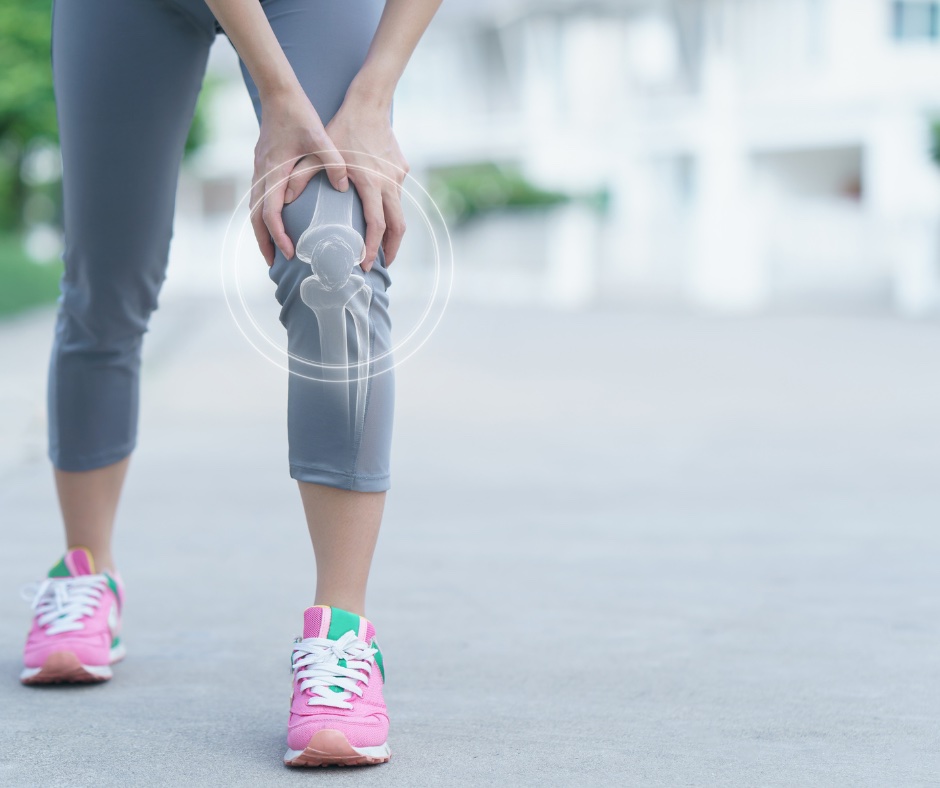Your feet are the foundation of the body, supporting the body to move about freely each day. Their structure and alignment impact the health of other joints, including your knees. Therefore problems in the feet can cause biomechanical changes that lead to knee pain in the following ways.
1. Foot alignment affects the knee position
The way the feet are aligned directly influences the position of the knees. For example, flat feet (also called overpronation) cause the ankles to roll inward, which shifts the knee to an inward position. When the knee is not straight, it must work harder to support the leg and can cause pain on the inside of the knee.
Conversely, high arches can pull the knees so they’re pointing more outward which places excessive stress on the knee joints. This stress can affect the cartilage and ligaments, increasing the risk of pain and injury over time.
2. Feet have shock absorption which protects the knees
The feet play an important role in absorbing shock when you’re running, walking or jumping. If your feet have structural problems, for example flat feet, high arches, or even improper footwear, this reduces the feet’s ability to absorb impact effectively. This transfers more shock to the knees, potentially leading to pain and discomfort in knees and ongoing problems in the feet.
Well-fitting footwear or orthotics if you need them will help the feet to function better therefore reducing the stress on the knees.
3. Influence of foot muscle strength
If there is weakness in the intrinsic muscles of the feet, this can lead to instability, affecting the way the knees move and bear weight. For example, flat arches may cause the feet to collapse inward, and as we discussed above, this alters the alignment of the knee joint causing stress to the ligaments and tendons. By strengthening the foot muscles, this will improve balance and stability and will support the knee to bear weight more evenly.
4. Walking gait affects the knees
The feet guide the body’s movement patterns when walking and running. If there are irregularities in the feet, such as bunions, or plantar fasciitis which cause pain, this can alter your walking gait. The feet try and compensate to even our posture, which can stress the knees. For example, a person with foot pain may shorten their stride or rotate their leg differently when taking a step, which can cause pain in the knees.
5. Muscle tightness can lead to imbalance
Knee pain can be caused by muscular imbalances, or tightness in the quadriceps, hamstrings, or calves. Although these muscle groups are further away from the foot, the connection between the feet and legs is complex and these imbalances can affect the way the knee and foot work together during movement.
Tight calf muscles which are common in people with knee pain, can affect the mechanics of the Achilles tendon, leading to heel pain or Achilles tendonitis.
Sore knees? Come and see the family-friendly podiatry team at Sanders
At Sanders Podiatry, we know that good health starts from the ground up, and if you care for your feet with exercises, supportive footwear, and regular podiatry visits, your feet will better support your body well into your older years. Give us a call to make an appointment and we’ll help you understand potential causes of knee pain and your treatment options.
Sander Podiatry Adelaide – 08 8379 1456 (Greenhill Podiatry)
